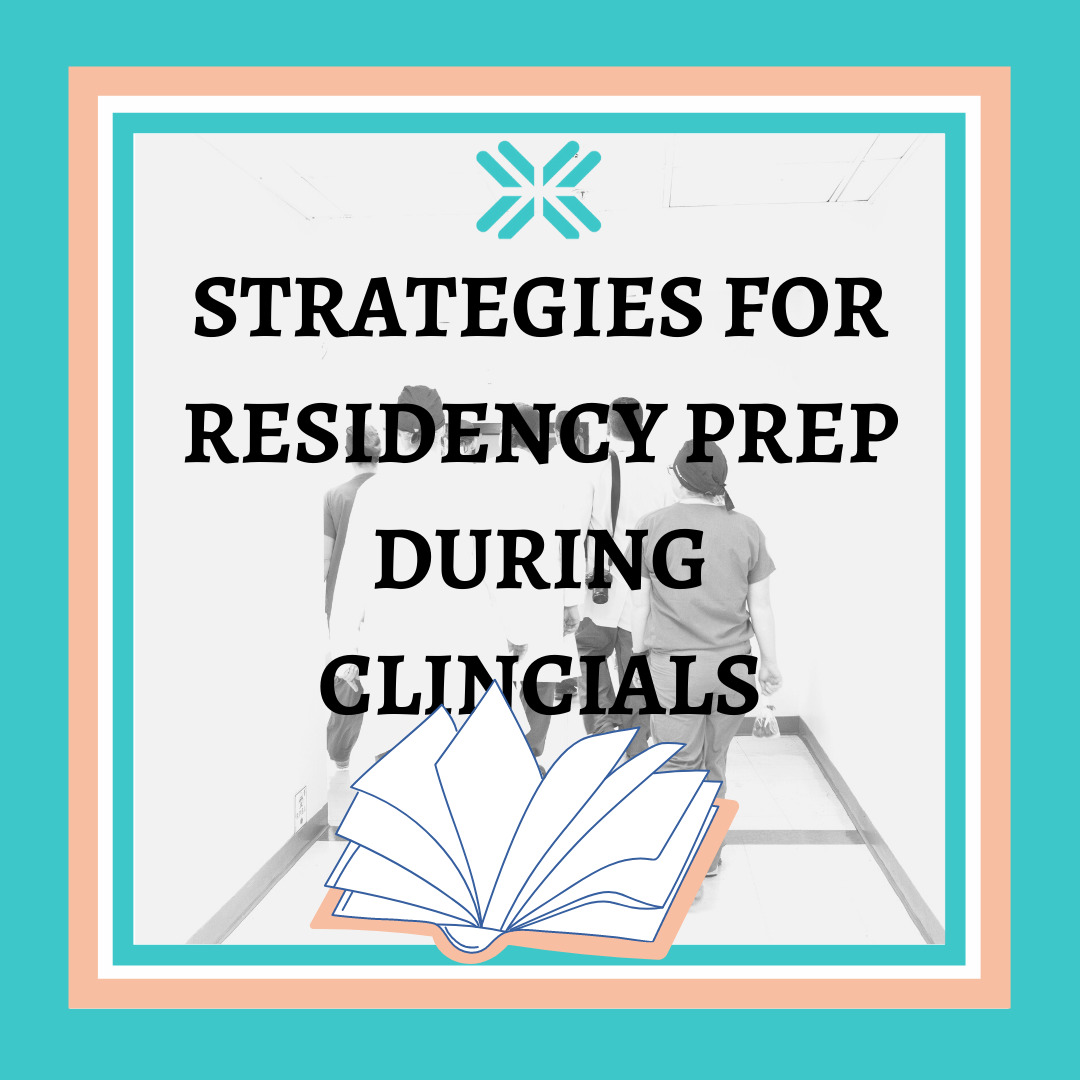Your clinical rotations have begun and you’re on your way to the residency of your choice. So, time to ride the train to success, right?! Not yet!
Many activities are required for a successful residency match. Some schools help their students prepare for this very well, while others do not. Failing to plan ahead of time can leave students stressed and struggling to juggle their personal and academic lives. Here are some top recommendations from physicians and residency directors that students should consider during their early clerkships.
1. Scheduling is Key!!!
Many timelines and dates will be involved during this time. Students must juggle their clinical rotations, shelf exams, board exams, extracurricular activities, and personal schedules all while getting little time for sleep and personal care. Make sure you have a clear understanding of your required timetable and set notifications several days ahead for important due dates.
Also, be prepared for your schedule to change frequently and significantly. Having backup plans in play can reduce stress when the unexpected occurs. Medical learners must be very flexible during this home stretch!
2. Technical Know-how
With your plan in place, let’s become more efficient! Use text replacement on your mobile, computer, and even ERMs! This will save you much more time than most would imagine. Having a syncable digital note app, shareable cloud storage, and organized browser bookmarks on multiple devices makes searching for and sharing information nearly effortless. You can also save your notes, flashcards, and top podcasts for later review!
3. Using Residency Services
If you plan to use a residency match assistance program, be sure to incorporate this into your timeline. This can include anything from personal statement assistance to exam review sessions. Each will require the learner to consider their personal goals and plan accordingly.
American medical students are more likely to simultaneously finish their rotations and shelf exams while going on residency interviews. IMGs may have breaks in between that allow for more flexibility.
Consider your personal needs, school requirements, and be ready for scheduling conflict and last-minute alterations! Plan what you would do if an emergency arose. This will make it much easier to handle new stressors when they arise.
4. Early Match Programs
As mentioned in 7 Ways to Maximize Your Clinical Rotations Schedule, Military, urology, Neurology, Neurosurgery, and Ophthalmology have early match programs. Give yourself plenty of buffer time to get in all required training and documentation. This means completing those specialty rotations early and getting your LORs!
5. Location, Location, Location
Travel plans are traditionally a huge part of the interview season. Scheduling these last-minute flights, car rides, lodgings, and other accommodations during clinical clerkships is a huge expense and emotional strain! Having excess funds, emergency plans ready, and strong social support goes a long way to reducing stress during this vital time.
With the changing medical education field due to COVID, the interview season has shifted to remote/digital interviewing. There is no way to know if this will continue in the future or revert to the traditional way things were done. Find relevant resources to the current Match year to best plan for your upcoming travels.
6. You are a Lifelong Learner
If you haven’t done so by this point, begin to plan your financial, educational, and social futures. How might studying during residency change? What resources will you use? Who can you turn to for help? We recommend this 3-part series with Greg Rodden, DO for detailed advice!
7. Don't Forget Balance
Non-medical education is also something to consider earlier rather than later. Use the many free blogs, podcasts, and other resources out there to determine key non-medical residency-related concerns. You may be busy now, but that isn’t going to let up in residency!
How will you tackle student debt? Are you planning on a fellowship? Are marriage, children, and other large life changes in your near future? Will buying a home or renting be right during residency? How can you maintain balance between life and work? These are not questions you want to put on the back burner too long!
Your clinical clerkships will be a trying time. However, studies have shown that approximately 50% of medical residents suffer from burnout. Starting to think and plan ahead will help prepare you for your residency and possibly prevent burnout. Balance in life is important as is resilience. And always remember, the only constant in life is change!
